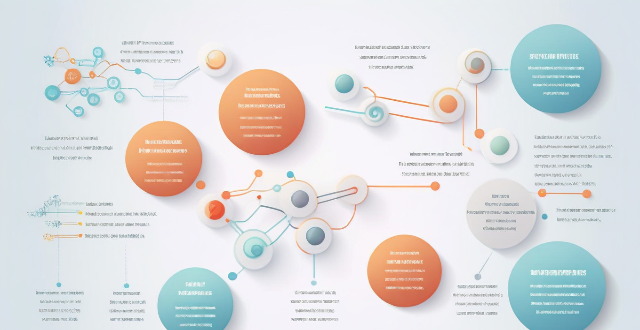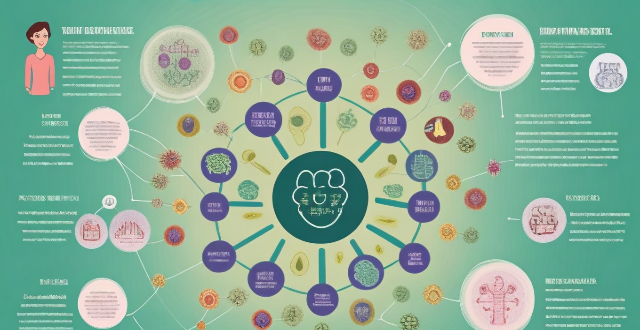Standards Ethical

How do ESG standards affect corporate responsibility ?
ESG standards shape corporate responsibility by providing a framework for measuring and managing company impact on the environment, society, and governance. They require companies to reduce their carbon footprint, ensure sustainable sourcing, promote diversity and inclusion, engage with communities, maintain ethical business practices, and encourage board diversity. Adhering to these standards demonstrates commitment to sustainability and social responsibility, leading to long-term success and profitability.

What is corporate social responsibility (CSR) ?
Corporate social responsibility (CSR) is an approach where companies voluntarily integrate ethical and sustainable practices into their business model. It covers various aspects including environmental sustainability, ethical sourcing, community engagement, stakeholder relationships, and transparency. Implementing CSR can enhance a company's reputation, improve employee loyalty, and manage risks better. From a societal perspective, it can elevate living standards, promote sustainable development, and set ethical standards across industries. However, criticisms include potential greenwashing, increased costs for consumers, and a lack of universal standards for measuring CSR effectiveness. Despite these criticisms, the incorporation of CSR is becoming increasingly common, indicating a shift towards a more ethical and sustainable global economy.

What ethical concerns arise with the development of advanced AI systems ?
The development of advanced artificial intelligence (AI) systems raises numerous ethical concerns, including privacy violations, bias and discrimination, autonomy and control issues, job displacement, and philosophical questions about consciousness and humanity. Addressing these challenges requires establishing legal frameworks, promoting diversity in data sets, maintaining human oversight, investing in workforce retraining, and engaging in cross-disciplinary dialogue to create robust ethical guidelines for AI technology.

How do global ESG standards vary across different industries ?
Global Environmental, Social and Governance (ESG) standards are used by organizations to measure and manage their impact on the environment, society, and governance. These standards vary across different industries due to the unique challenges and opportunities each industry presents. In the energy industry, ESG standards focus on reducing greenhouse gas emissions, improving air quality, and promoting renewable energy sources. The financial services industry faces unique ESG challenges related to responsible investment, diversity and inclusion, and ethical business practices. Manufacturing companies face ESG challenges related to waste reduction, worker safety, and supply chain management. The healthcare industry faces unique ESG challenges related to patient safety, data privacy, and access to affordable healthcare. The technology industry faces ESG challenges related to digital security, privacy protection, and responsible innovation. By focusing on specific areas of concern within each industry, organizations can work towards creating a more sustainable future while also improving their overall performance and reputation.

What are the ethical considerations for insurers when it comes to climate change ?
The insurance industry faces significant ethical challenges due to climate change, including understanding and communicating risks, pricing and availability of insurance, responsibility and accountability, and collaboration and leadership. Ethical considerations such as transparency, fair pricing, accessibility, mitigating impact, adaptation and resilience, partnerships, and advocacy for regulations are crucial in managing these challenges. Insurers play a vital role in contributing positively to societal efforts in mitigating and adapting to climate change by focusing on these ethical aspects.

Are there any ethical considerations when celebrities invest in certain types of businesses ?
Celebrities must consider ethical implications when investing in businesses, including impact on consumers, environmental concerns, social responsibility, and transparency. Prioritizing ethical investments can promote positive change and set a good example for fans and the public.

What are the ethical considerations of space exploration and colonization ?
The article discusses the ethical considerations of space exploration and colonization, emphasizing the importance of balancing potential benefits with risks, considering environmental impact, addressing interplanetary diplomacy, and developing a comprehensive legal and regulatory framework. It highlights the need for a strong ethical framework to ensure responsible and sustainable pursuit of space endeavors.

How do wireless communication standards work ?
Wireless communication standards are essential for enabling seamless interactions between devices, and they operate within specific guidelines and protocols. These standards cover areas such as frequency bands, modulation techniques, multiple access methods, error handling, security measures, and compliance testing to ensure interoperability among various devices. Understanding these components is key to grasping how wireless technologies work together to create our interconnected world.

Is it ethical to use genetically modified organisms (GMOs) in agriculture ?
The use of genetically modified organisms (GMOs) in agriculture is a complex and contentious issue that raises ethical questions. Proponents argue that GMOs offer benefits such as increased crop yields, reduced pesticide use, improved nutrient content, and environmental sustainability. Opponents raise concerns about human health risks, economic concentration, environmental impact, and ethical considerations. Key ethical considerations include scientific evidence, public perception, equity and access, environmental stewardship, ethical principles, regulatory oversight, long-term monitoring, global collaboration, innovation and alternatives, and education and awareness.

What are the ethical implications of climate conflicts ?
The ethical implications of climate conflicts, which ariseThe ethical implications of climate conflicts, which arise climate change issues like resource scar which arise from disputes related to climate change issues like resource scarcity and displacement, involve complex moral dilemmas. These conflicts require careful consideration of rights, responsibilities, justice, sustainability, and stewardship. Key ethical principles include balancing individual rights with environmental responsibilities, ensuring justice and fairness in solutions, and promoting sustainability for future generations. Ethical dilemmas such as intergenerational equity, compensation and redress for victims, and balancing mitigation and adaptation strategies must also be addressed. Open dialogue and collaborative problem-solving are essential for finding solutions that promote a more equitable and sustainable future.

How do wireless communication standards affect mobile devices ?
Wireless communication standards significantly impact mobile devices' performance, functionality, and user experience. They influence speed and bandwidth, latency, connectivity range, compatibility with different networks, interoperability, security features, battery life, quality of service, mobility and portability, and device form factors. Advances in these standards drive innovation in the mobile industry, leading to faster, more reliable devices offering richer experiences to consumers.

How to ensure ethical practices in influencer marketing ?
Influencer marketing has become a popular strategy for brands to reach their target audience. However, it is essential to ensure ethical practices in this form of marketing to maintain trust and credibility with consumers. Here are some tips on how to ensure ethical practices in influencer marketing: 1. Disclose relationships between the brand and the influencer. 2. Choose relevant influencers who align with your brand values and have a genuine interest in your product or service. 3. Set clear guidelines for influencers regarding what they can and cannot do when promoting your brand. 4. Regularly monitor influencer content to identify any issues or concerns early on. 5. Foster transparency and honesty in all aspects of influencer marketing.

What are the consequences of ignoring safety standards in construction work ?
Ignoring safety standards in construction work can lead to severe consequences, including risk to human life, project delays, financial losses, reputation damage, legal implications, environmental impact, and public safety concerns. Adhering to these standards is crucial for the well-being of all involved parties and the success of the project.

How do building energy efficiency standards vary across different countries ?
The article discusses building energy efficiency standards and their global variations, influenced by factors like climate, economics, technology, government policies, and cultural preferences. It highlights the importance of these standards in sustainable development and reducing carbon emissions in the built environment. The text emphasizes that understanding these variations is essential for collaborative efforts and knowledge sharing as the global community strives towards decarbonization and sustainability goals.

How do international standards and certifications affect industrial energy efficiency practices ?
International standards and certifications significantly influence industrial energy efficiency practices by setting uniform benchmarks, driving innovation, enhancing reputation, promoting transparency, supporting regulatory compliance, and leveraging resource efficiency. These standards provide a framework for continuous improvement, drive technological advancements, expand market opportunities, ensure accountability, align with policies, reduce waste, and offer cost benefits. As sustainability becomes a global priority, adherence to these standards will be crucial for industrial competitiveness and success.

What are the ethical responsibilities of governments in mitigating climate change ?
The text discusses the ethical responsibilities of governments in mitigating climate change, which include protecting public health and safety, promoting intergenerational equity, upholding international agreements, ensuring transparency and accountability, and promoting environmental justice. Governments must take proactive measures to reduce greenhouse gas emissions and implement adaptation strategies to minimize risks to public health. They have an obligation to ensure that current generations do not compromise the well-being of future generations by neglecting climate change. Upholding international agreements such as the Paris Agreement is an ethical responsibility of governments, as it demonstrates a commitment to collective action and cooperation in addressing a shared global challenge. Governments must be transparent and accountable in their actions related to climate change, disclosing information about greenhouse gas emissions and engaging with civil society organizations and the public on climate change issues. Environmental justice refers to the fair treatment of people regardless of race, ethnicity, income, or geographical location, with respect to environmental hazards and benefits. Governments have an ethical responsibility to address disparities in exposure to environmental harms caused by climate change.

How do building energy efficiency standards impact the environment ?
**Summary:** Building energy efficiency standards positively impact the environment by reducing greenhouse gas emissions, conserving natural resources, enhancing air quality, and promoting energy innovation. These standards lead to more energy-efficient buildings, reduced dependence on fossil fuels, cleaner air, and advancements in sustainable technologies.

How do celebrities influence fashion trends and beauty standards ?
Celebrities significantly influence fashion trends and beauty standards through their endorsements, red carpet appearances, social media presence, and collaborations with designers. They set trends by making innovative style choices and promoting self-care and wellness. However, their influence is not without controversy, as some argue it leads to unrealistic beauty standards and cultural appropriation.

What ethical considerations should be taken into account when tracing virus origins ?
Tracing the origins of a virus involves various ethical considerations to ensure protection of individuals, communities, and the environment, while promoting scientific progress. Key considerations include respect for cultural and social sensitivities, protection of privacy and confidentiality, and environmental sustainability. Researchers must avoid stigmatization or discrimination against any group or community, engage with local communities, obtain informed consent, implement robust data security measures, minimize environmental impact, and collaborate with environmental stakeholders. By doing so, researchers can conduct responsible and ethical investigations that contribute to our understanding of viral diseases and inform public health policies.

What are the ethical implications of genetically modified organisms (GMOs) on the environment ?
The article discusses the ethical implications of genetically modified organisms (GMOs) on the environment, including their potential impact on biodiversity, risk of environmental disasters, and broader economic and social implications. It highlights concerns such as loss of native species due to competition for resources, genetic contamination, and habitat destruction; the potential spread of pests and diseases, ecosystem disruption, and genetic pollution; as well as issues related to monopolies and access to seeds, dependence on corporations, and loss of autonomy for farmers. The conclusion emphasizes the importance of considering these ethical considerations in decisions regarding the development and deployment of GMOs to prevent irreparable harm to ecosystems and communities.

What are the ethical considerations when sports are used in international diplomacy ?
Sports have been used as a tool for international diplomacy, but there are ethical considerations to take into account. These include respecting cultural differences, promoting fairness and equity, avoiding political manipulation, and protecting athletes' rights. By doing so, sports can continue to serve as a positive force for building bridges between nations.

How do ethical considerations factor into the use of AI in sports ?
Ethical considerations in the use of AI in sports include fairness and bias, privacy and data protection, integrity and cheating, transparency and accountability, human oversight and control, and future implications. It is important to ensure that AI algorithms are free from inherent biases, strict data protection regulations are enforced, clear guidelines are established to prevent misuse of AI technology, transparency and explainability are essential for building trust in AI applications within sports, clear lines of accountability must be established for actions taken by AI systems, human judgment should always play a role in decisions influenced by AI in sports, and thoughtful planning is required to mitigate potential negative consequences of AI on the sports industry.

How have building energy efficiency standards evolved over time ?
The evolution of building energy efficiency standards has been significant over the years, with a focus on reducing energy consumption and environmental impact. Early beginnings saw little consideration for energy consumption, leading to high utility bills and greenhouse gas emissions. The rise of energy conservation in the 1970s led to the development of the first building energy efficiency standards, focusing on measures such as improved insulation and efficient heating and cooling systems. The advent of green buildings in the 1990s brought new standards that minimized environmental impact through the use of renewable energy sources and sustainable materials. Technology has played a significant role in improving energy efficiency, with advances such as smart thermostats and LED lighting. Looking to the future, there is likely to be a greater emphasis on reducing energy consumption in buildings, leading to stricter standards and the development of new technologies. Overall, building energy efficiency standards have evolved to become an essential part of modern building design and construction.

Are there any international standards for carbon credit systems ?
There are several international standards and protocols that govern carbon credit systems, including the Climate Action Reserve (CAR), the International Carbon Reduction and Offset Alliance (ICROA), and regional and national standards such as the European Union Emissions Trading System (EU ETS) and the North American Carbon Programme (NACP). These standards ensure the credibility, transparency, and integrity of carbon offset projects by setting rigorous guidelines for project developers to follow. By adhering to these standards, organizations can demonstrate their commitment to combating climate change and contribute to a more sustainable future.

Are there any ethical considerations that need to be addressed before embarking on interstellar exploration ?
The text discusses the ethical considerations for interstellar exploration, including potential risks and benefits, as well as the impact it may have on future generations. The risks include the risk to human life due to harsh conditions in space, resource allocation that could be diverted from addressing pressing issues on Earth, and cultural impact promoting a culture of colonization and exploitation. The benefits include scientific discovery, technological innovation, and collaboration and peace among nations. The impact on future generations involves responsibility to preserve knowledge and ensure sustainability, as well as opportunities for new worlds and a legacy of exploration. It is crucial to carefully weigh these factors and address ethical considerations before proceeding with plans for interstellar travel.

What is academic integrity ?
Academic integrity is a fundamental principle governing the conduct of research, teaching, and learning in academic institutions. It encompasses values and ethical standards promoting honesty, fairness, respect, and responsibility among students, educators, and researchers. The goal is to maintain trustworthiness and credibility by adhering to high ethical standards. Core values include honesty, fairness, respect, and responsibility. Key aspects are avoiding plagiarism, fabrication, cheating, multiple submissions, and collusion. Violating academic integrity can lead to loss of reputation, disciplinary action, legal consequences, diminished career prospects, and ethical implications. Adhering to academic integrity promotes a fair and just academic environment.

What are the current building energy efficiency standards ?
The text discusses building energy efficiency standards, which are regulations and guidelines designed to reduce energy consumption. These standards promote sustainable development, reduce greenhouse gas emissions, and improve indoor air quality. The text lists seven key areas for improving energy efficiency: insulation and air tightness, heating, ventilation, and air conditioning systems, lighting systems, renewable energy sources, water efficiency, building materials and construction practices, and energy management and monitoring. Each area includes specific strategies and technologies that can be employed to increase energy efficiency.

How do building energy efficiency standards affect the construction industry ?
Building energy efficiency standards have a significant impact on the construction industry by affecting cost implications, design philosophy, regulatory compliance, and market trends. These standards require higher initial costs due to advanced technologies and materials but offer long-term benefits like reduced energy consumption and maintenance costs. They also shift the focus of design towards energy performance and sustainability, leading to integrated design processes and innovative solutions. Compliance with these standards is crucial to avoid penalties and legal issues, while certifications like LEED or WELL can provide a competitive advantage. Finally, building energy efficiency standards influence market trends by driving demand for sustainable construction methods and educating clients about their benefits.

What challenges do businesses face when dealing with cultural diversity ?
Businesses operating globally face challenges with cultural diversity impacting communication, decision-making, and productivity. Key challenges include: 1. **Communication Barriers** due to language differences, non-verbal cues, translation issues, and accents/dialects. 2. **Cultural Stereotyping** leading to generalizations, lack of awareness, and assumptions based on cultural backgrounds. 3. **Values and Beliefs Conflicts** arising from work ethic variations, religious practices, and differing attitudes toward gender roles. 4. **Legal and Ethical Considerations** such as navigating employment laws, ethical standards, and data privacy regulations. 5. **Organizational Practices** including management styles, decision-making processes, and feedback mechanisms that vary across cultures. 6. **Adaptation and Change Management** challenges like resistance to change, training needs, and continuous learning requirements. Addressing these challenges requires proactive strategies to ensure all employees feel valued, respected, and can contribute to the organization's success.

What are the potential consequences of ignoring food safety standards ?
Ignoring food safety standards can lead to health risks, legal issues, and damage to a company's reputation. The most immediate consequence is potential harm to human health, including foodborne illnesses, allergic reactions, and chronic health problems. Legal issues may arise from fines and penalties, lawsuits, and loss of business licenses. Ignoring food safety standards can also damage a company's reputation through loss of customer trust, negative publicity, and decreased sales. It is essential for all stakeholders in the food industry to prioritize food safety practices to protect public health, comply with legal requirements, and maintain a positive reputation.